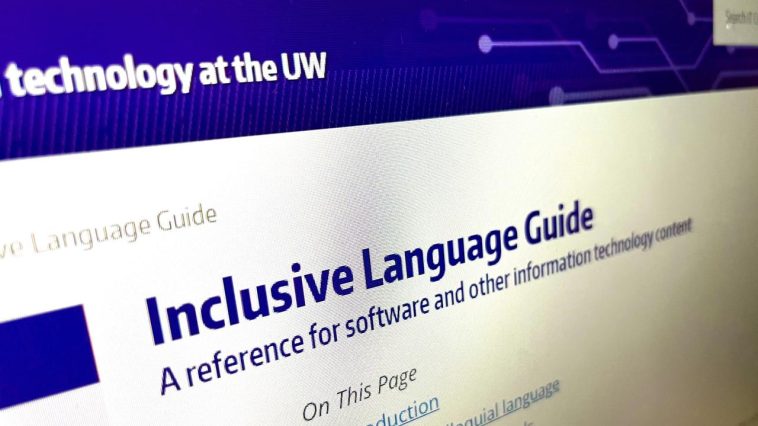A language guide from the University of Washington has labeled everyday words used by Americans as “problematic”.
The “inclusive language guide” was released by the University of Washington Information Technology department.
The list includes “problematic” words that are “racist,” “sexist,” “ageist,” or “homophobic”.
In the guide, words like “grandfather,” “minority,” “ninja,” “lame,” and “housekeeping” care considered to be problematic.
The guide explains that “lame” is a problematic word because it’s “ableist”.
“This word is offensive, even when it’s used in slang for uncool because it’s using a disability in a negative way to imply that the opposite, which would be not lame, to be superior,” the guide says.
“When ‘minority’ is used to refer to other races or abilities, used as a generalized term for ‘the other’ and implies a ‘less than’ attitude toward the community or communities being discussed,” according to the guide.
“Grandfather” is problematic because the “‘Grandfather clause’ originated in the American South in the 1890s as a way to defy the 15th Amendment and prevent black Americans from voting”.
“Housekeeping” is a word the guide recommends people avoid using because it may “feel gendered”. “Preferred pronouns” is problematic because it suggests “a person’s pronoun is optional”.
One of the other problematic situations is using “”red,” white,” or “yellow” to create teams. “Using colors based as racist tropes — labelling [sic] ‘white’ as good, ‘black’ as bad, ‘red’ as attackers, or ‘yellow’ as excluded third parties — is offensive,” the guide says.
Employees at the university are encouraged to contact vendors that use “problematic words and phrases” and ask them to avoid using terms from “racist, ableist and/or sexist origins”.


